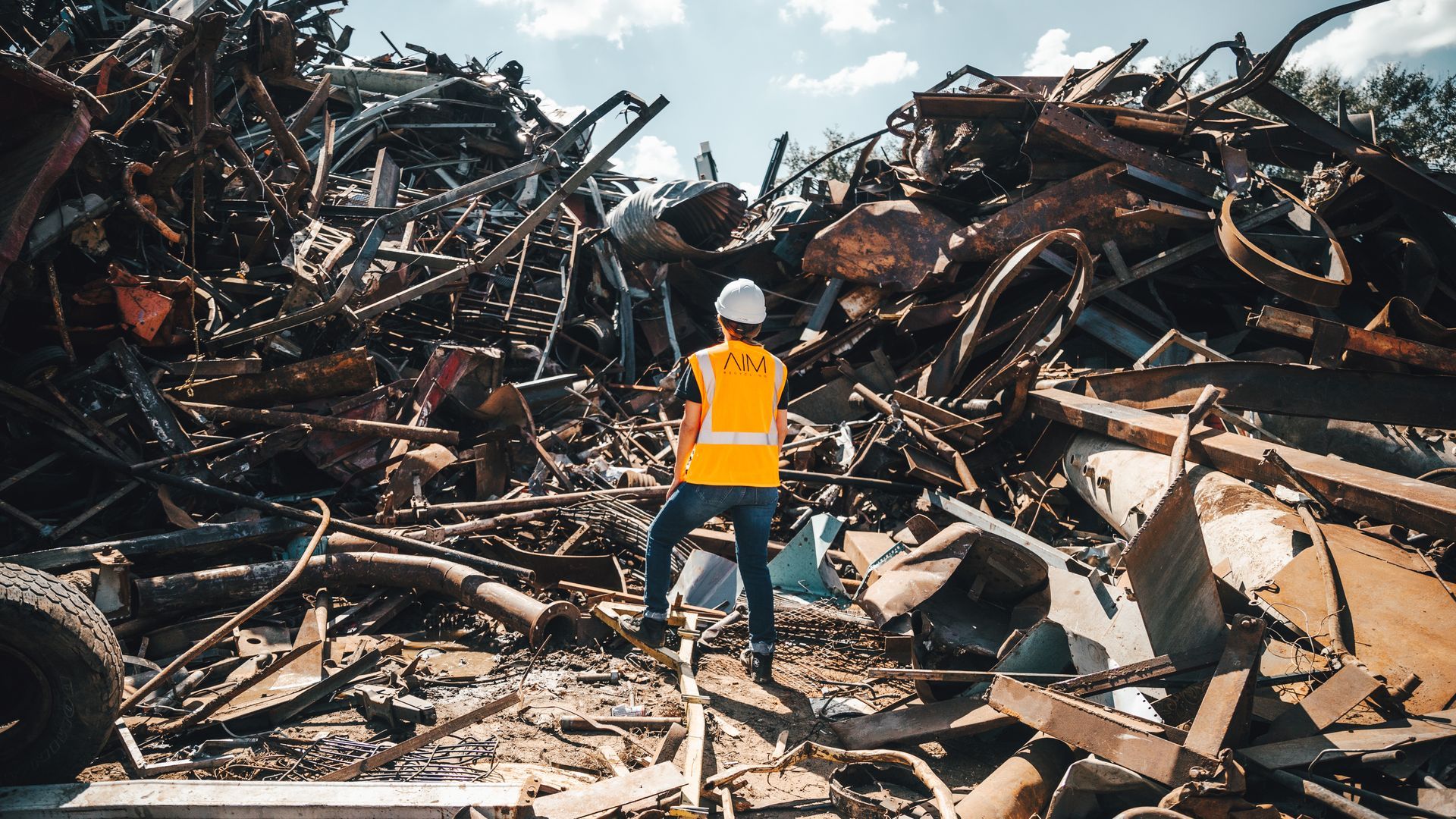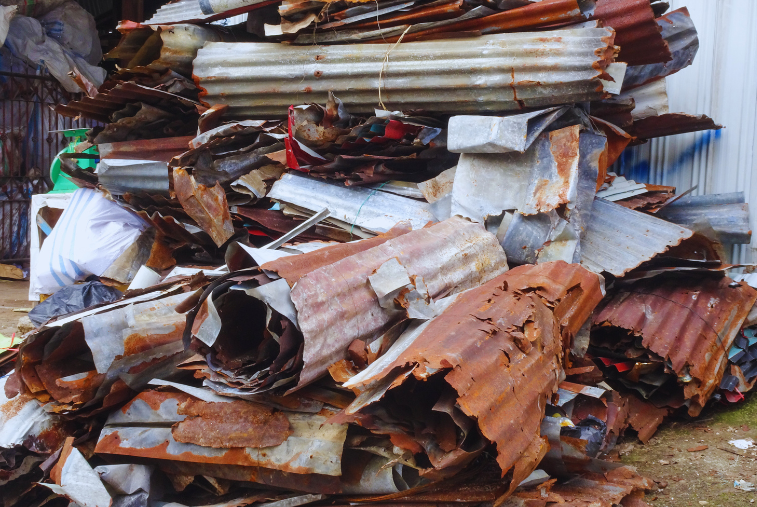The Benefits of Recycling Scrap Metal: Saving Energy & Reducing Waste
Posted: July 7, 2023
About This Article:
In this blog, we explore the incredible benefits of recycling scrap metal. Learn about the most common metals that are recycled such as aluminum, copper and steel just to name a few. Understand the positive impact when you can make when you choose to recycle over tossing your old metal materials into the trash.

Scrap metal recycling has been an essential part of the growing environmental movement since the 1960s and 1970s. The practice has gained more traction in recent years as people have become increasingly aware of the devastating effects of pollution on the planet.
Scrap metal contains a range of toxic chemicals, including lead and mercury. When these chemicals are left to decompose in landfills, they can contaminate the soil and water supply, putting the public's health at risk. By recycling scrap metal, we are not only doing our part to protect the environment, but we are also conserving natural resources.
Recycling scrap metal is one of the easiest and best ways to protect the environment and maintain the health of everyone in the surrounding community. We all have a responsibility to do our part and recycle whenever possible to ensure a sustainable future. Did we mention you will be paid for the materials you bring into the scrap yard? Since prices fluctuate, AIM Recycling monitors market conditions to ensure that we can offer our customers competitive pricing across East Texas and beyond.
What Is Scrap Metal Recycling?
Scrap metal recycling is the process of collecting, processing, and reusing metals that would otherwise be thrown away as waste. This process has numerous benefits, including saving energy, and protecting the environment from harmful waste materials.
Scrap metal can come from a variety of sources, including discarded consumer products, construction sites, and manufacturing facilities. The most commonly recycled metals include steel, aluminum, copper, and brass. Recycling scrap metal is a crucial step towards sustainable waste management. Instead of sending metal waste to landfills, it can be recycled and repurposed for new products.
Furthermore, scrap metal recycling helps to conserve energy. The process of extracting and refining metals requires significant amounts of energy. By using recycled metal instead, we can save up to 90% of the energy needed for metal production.
Examples of Recyclable Metals
Hidden within the confines of your everyday surroundings, there lies a hidden treasure trove of recyclable metals. You might be amazed to learn that some of the most frequently recycled metals are hiding in plain sight. Recycling these objects not only benefits the environment but also contributes to the sustainability of our wonderful planet. By diverting these recyclable metals from landfills, we are reducing the amount of waste that ends up polluting our soil and water sources. This not only helps protect the health of our communities but also preserves the delicate balance of our ecosystems.
The benefits of recycling these metals extend beyond environmental considerations. Recycling scrap metal also presents economic opportunities for individuals and businesses. By bringing these materials to scrap yards or recycling centers, individuals can earn extra income while contributing to sustainable waste management practices. For businesses, recycling scrap metal can lead to cost savings, as they can avoid the expenses associated with disposing of metal waste in landfills.

Aluminum, is a versatile and lightweight metal, known for its exceptional resistance to corrosion. It’s used in a wide range of products, from soda cans and building materials to appliances, automobiles and even airplanes. With over 30 million tons of scrap aluminum being recycled annually worldwide, it is undoubtedly one of the most recycled materials on our planet. The process of recycling aluminum can save 95% of energy required to produce new aluminum. Surprisingly, about 75% of the aluminum produced since the 1880s is still in use today, highlighting its long-lasting and sustainable nature.
Brass, is an alloy made from a combination of copper and zinc. It is commonly used in plumbing, building materials, decorative fixtures, sculptures and more. One fascinating aspect of brass is its incredible durability, which means if it ends up in a landfill, it will remain there indefinitely. By recycling brass, we can reduce the need for mining ore to produce new brass. Mining is an energy-intensive and environmentally damaging process, especially when compared to the creation of metals, and metal ores are finite resources. Like aluminum, brass can be recycled repeatedly without losing its quality and properties. Recycling brass not only conserves resources but also helps minimize the impact on the environment.
Copper, with its incredible recyclability, has played a vital role in reducing the need for mining and preserving our precious natural resources. Recycling copper can save up to 85% of energy, making it an environmentally sustainable choice. The impact of copper recycling has been astounding, with a staggering 0.7 trillion pounds of copper already mined. This impressive figure showcases the immense potential of copper recycling in terms of environmental sustainability and resource conservation.
Steel, is a highly sought-after material in the recycling industry due to its widespread usage in appliances, cars and construction materials. The recycling process for steel can result in energy savings of up to 60% compared to producing new steel. In fact, 98% of all steel produced is recycled. The production of steel has a significant impact on air pollution, releasing greenhouse gases such as carbon dioxide. Recycling steel mitigates these emissions and combats climate change. In fact, by recycling just one ton of steel, we can save 1,100 pounds of coal.
Lead, a heavy metal commonly found in car batteries, ammunition, electrical equipment and various industrial applications. Lead recycling plays a crucial role in preventing the accumulation of toxic lead in landfills and waterways. By opting to recycle lead, we not only safeguard natural resources but also significantly reduce the environmental impact associated with lead production. Over 50% of the lead used in the production of new lead products is obtained from recycled lead. Today, there is more lead being recycled than mined. This not only alleviates the strain on the Earth's natural resources but also minimizes energy consumption and reduces pollution resulting from mining practices. Lead is another metal that can be recycled indefinitely without any compromise in quality.
So, when you come across any of these common items that need to be disposed of, think about taking them to a nearby AIM Recycling center instead of simply discarding them. By choosing AIM Recycling, you are not only contributing to the protection of the environment but also supporting a local business that values sustainability. We are committed to providing competitive pricing for the materials you bring in, ensuring that you are rewarded for your efforts in recycling. Our team constantly monitors market conditions to offer fair and competitive prices, so you can feel confident that you are getting the best value for your recyclables. Thank you for actively playing a part in safeguarding the environment and ensuring a future where valuable resources thrive for generations to come.
To learn more about AIM Recycling or for information on our recycling services, visit our website at www.aimrecyclingco.com
